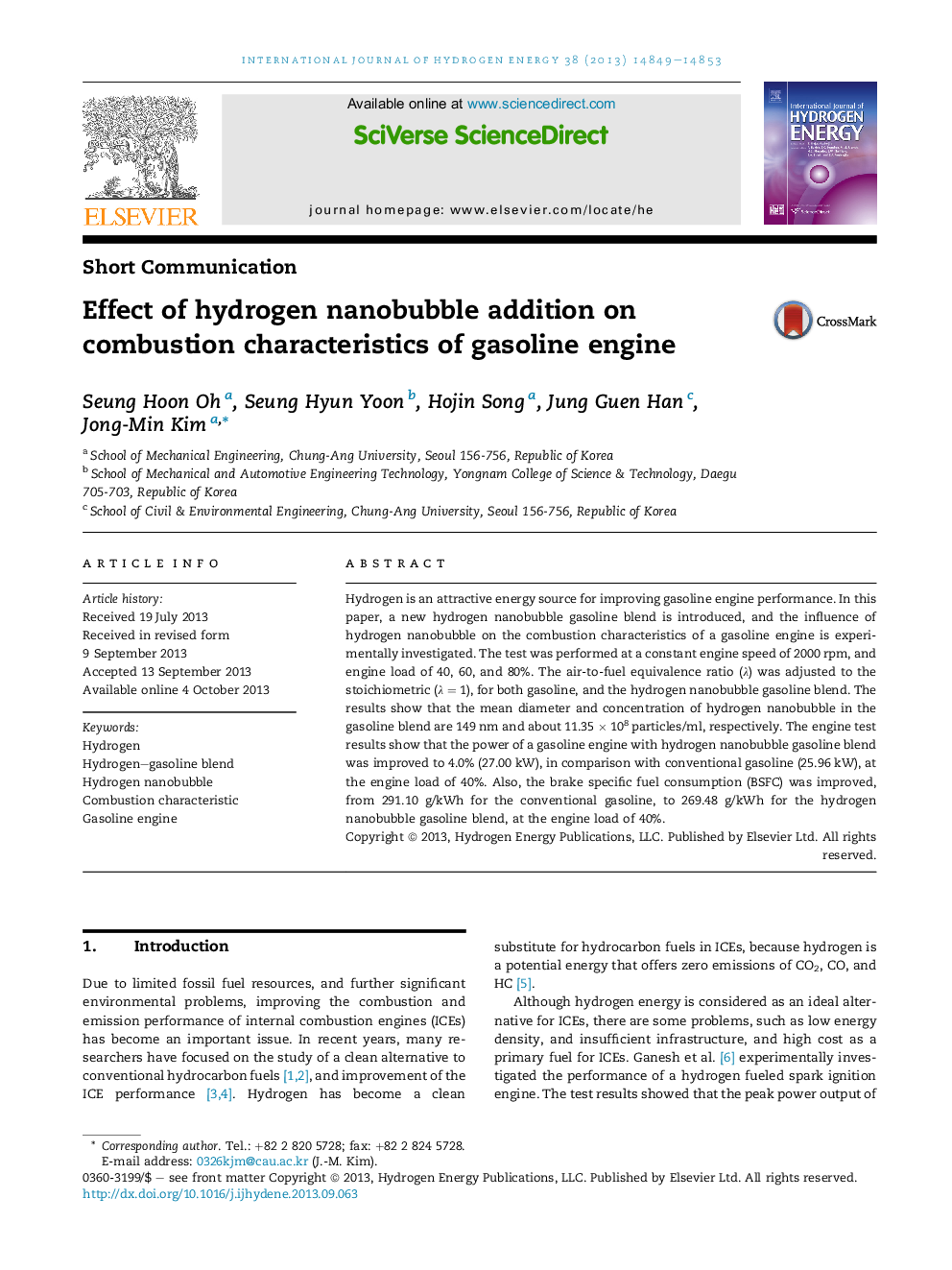| Article ID | Journal | Published Year | Pages | File Type |
|---|---|---|---|---|
| 7721517 | International Journal of Hydrogen Energy | 2013 | 5 Pages |
Abstract
Hydrogen is an attractive energy source for improving gasoline engine performance. In this paper, a new hydrogen nanobubble gasoline blend is introduced, and the influence of hydrogen nanobubble on the combustion characteristics of a gasoline engine is experimentally investigated. The test was performed at a constant engine speed of 2000 rpm, and engine load of 40, 60, and 80%. The air-to-fuel equivalence ratio (λ) was adjusted to the stoichiometric (λ = 1), for both gasoline, and the hydrogen nanobubble gasoline blend. The results show that the mean diameter and concentration of hydrogen nanobubble in the gasoline blend are 149 nm and about 11.35 Ã 108 particles/ml, respectively. The engine test results show that the power of a gasoline engine with hydrogen nanobubble gasoline blend was improved to 4.0% (27.00 kW), in comparison with conventional gasoline (25.96 kW), at the engine load of 40%. Also, the brake specific fuel consumption (BSFC) was improved, from 291.10 g/kWh for the conventional gasoline, to 269.48 g/kWh for the hydrogen nanobubble gasoline blend, at the engine load of 40%.
Related Topics
Physical Sciences and Engineering
Chemistry
Electrochemistry
Authors
Seung Hoon Oh, Seung Hyun Yoon, Hojin Song, Jung Guen Han, Jong-Min Kim,
